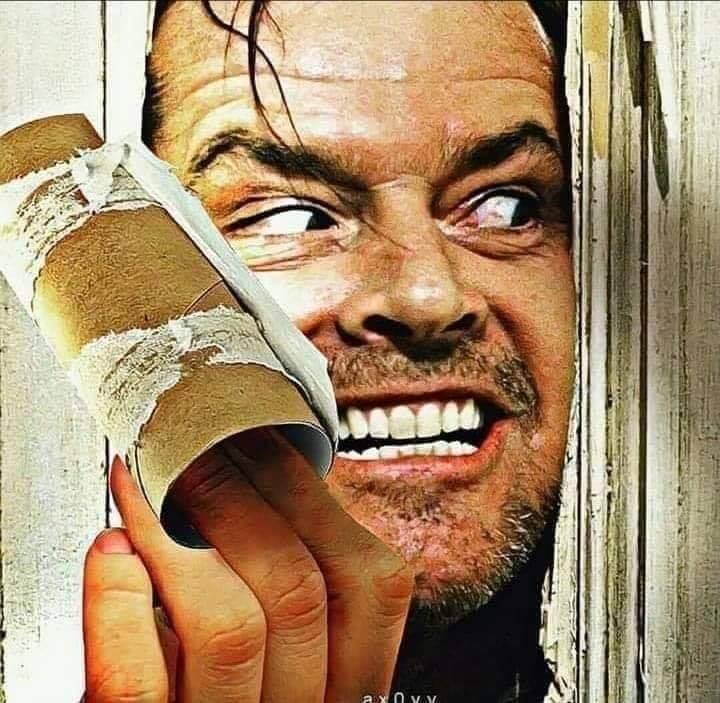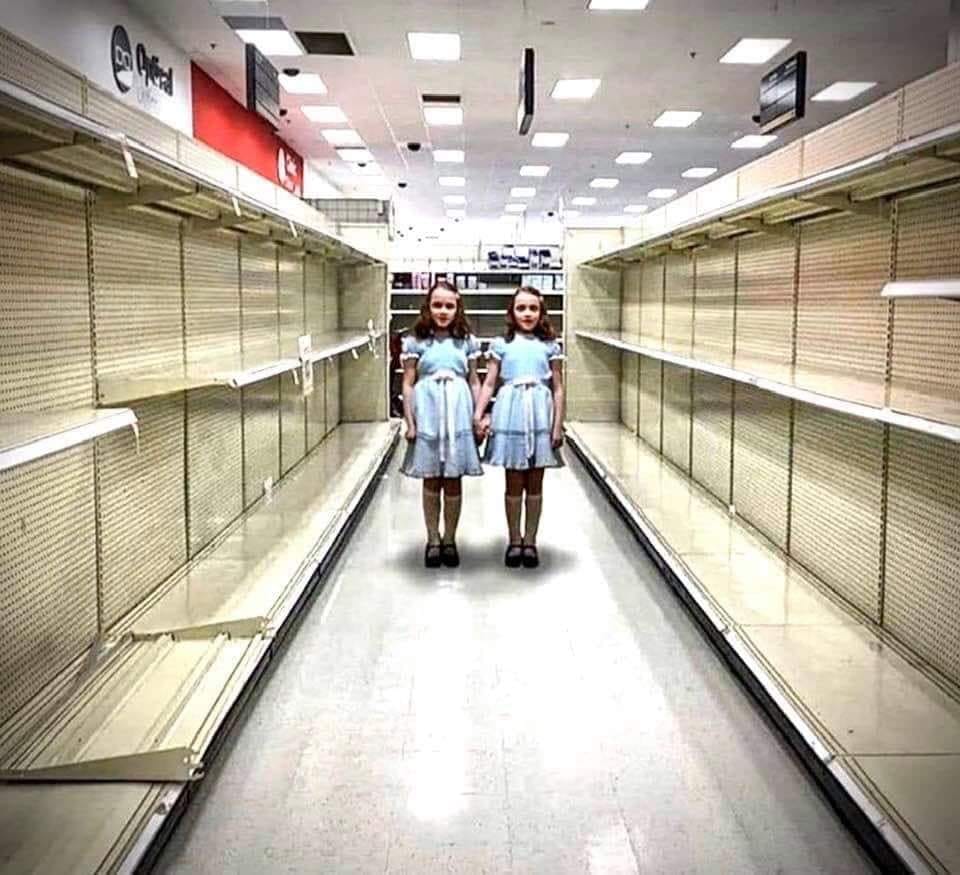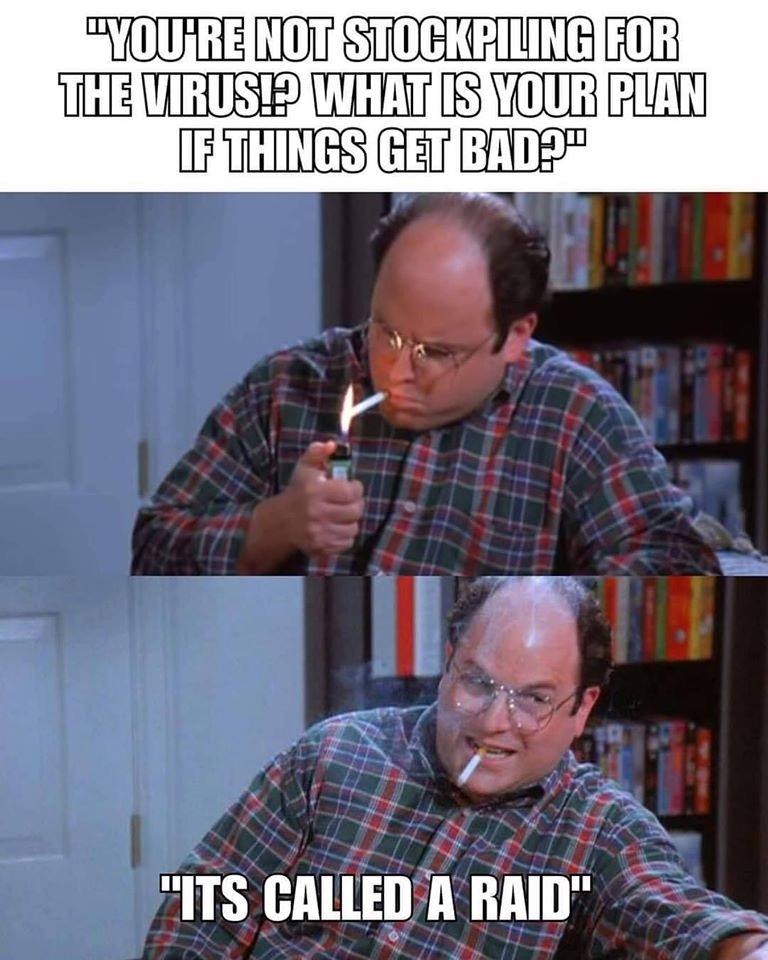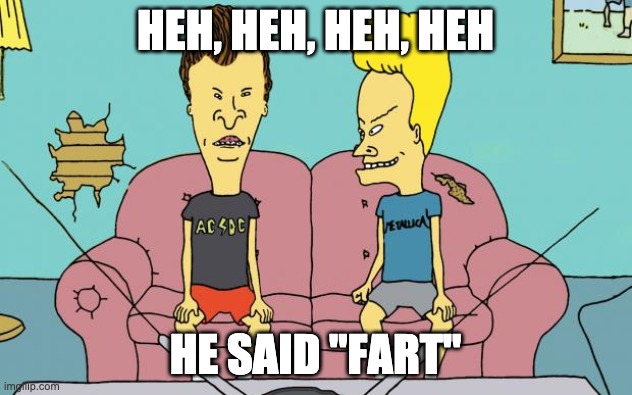
–The Great Cornholio
*Record scratch*
*Freeze frame*
Yup. That’s me. You’re probably wondering how I ended up home on Saturday night writing about toilet paper and game theory in the middle of a pandemic that causes respiratory failure.
Even more perplexing is why, despite no drop in production or disruptions in the supply line, toilet paper is sold out daily in just about every supermarket in North America.
Well, pull up a chair and grab a drink cuz we’re about to learn some basic game theory and some of its implications for political theory.
There are several games used to model human interactions but none as well-known as the prisoners’ dilemma. Prisoners’ dilemmas are used to model many kinds social problems that involve decisions to cooperate. Before applying it to toilet paper I’m going to explain it in its classic form.
Classic Prisoners’ Dilemma
The story goes like this: You and your friend Bob are bank robbers and are arrested. The police have enough evidence to convict you both on a minor crime. If convicted for the minor crime, you will each receive 2 years in prison. The police suspect that you and Bob are also responsible for a major crime–a bank robbery–but don’t have any compelling evidence against either of you. In fact, you did commit the bank robbery together. The police place you and Bob into separate rooms and make the following offer to each:
| Bob: Keep Quite | Bob: Confess | |
|---|---|---|
| You: Keep Quiet | 2 2 | 0 12 |
| You: Confess | 12 0 | 10 10 |
[In the standard language of game theory we can talk about your options in terms of cooperating (with your partner) defecting (not cooperating with your partner).]
- If you keep quiet (i.e., cooperate with Bob) and Bob keeps quiet (i.e., cooperates with you), then you both get 2 years for the minor crime. [Top left of the table]
- If you confess (i.e., defect) and Bob keeps quiet (i.e., cooperate) then we’ll set you free and Bob will get 12 years. [Bottom left]
- If you keep quiet (cooperate) and Bob confesses (defect), then you get 12 years and Bob gets 0. [Top right]
- If you confess (defect) and Bob confesses (defect), you both get 10 years. [Bottom right].
Bob receives the same deal.
[Note: The stupid blogging platform won’t let me make the standard-style table used for prisoners’ dilemmas. The bold underlined numbers represent the number of prison years YOU will get for each choice combination. The italicized numbers represent the years Bob will get.]
In the game we make a few assumptions:
- You prefer fewer years to more years in prison.
- Bob also prefers fewer years to more years in prison.
- You know Bob’s preferences and Bob knows that you know his preferences.
- Bob knows your preferences and you know that he knows your preferences.
So here’s the big question: Given your preferences, what is rational for you to do? That is, given that you can’t be in the same room as Bob when the police make the offer to him, what is the most rational strategy for you to adopt? Do you confess or keep quiet?
Option 1
Let’s suppose that you think Bob will keep quiet. If Bob keeps quiet, your options are either (a) to keep quiet and get 2 years or (b) confess and get zero. Zero years in prison is better than 2 years in prison. It is irrational to take extra years if your preference is fewer rather than more years. The rational choice is for you to confess (defect).
Option 2
Let’s suppose that you think Bob will confess. If Bob confesses your options are to (a) keep quiet in which case you will get 12 years or (b) confess in which case you will (both) get 10 years. You prefer 10 years of prison to 12 years in prison. The rational strategy is for you to confess (defect).
Notice something important. No matter what you think Bob will do, the rational strategy is always for you to confess; i.e., not cooperate with Bob.
We can replicate the same reasoning for Bob since he is in the exact same situation you are in. Assuming that Bob prefers fewer years to more years, it’s always rational for Bob to confess no matter what he thinks you will do. It’s never rational for Bob to cooperate with you.
Things are actually worse than this. Recall that you know that Bob is rational and Bob knows that you know he’s rational. That means you know he’s going to confess and he knows that you know he’s going to confess. If you know he’s going to confess then the rational move is for you to confess too and avoid getting stuck with 12 years like a sucker. And all the same things are true from Bob’s point of view. No matter what, it’s never rational for the two of you to cooperate!
This is one of the major insights of prisoners’ dilemmas: If people rationally pursue self-interest they will always end up worse off than if they’d cooperated. This is because if people rationally pursue self-interest it is never rational to cooperate. One more time: Acting rationally makes everyone worse off compared to if we’d cooperated. (With some caveats I’ll discuss later). You both end up with 10 years [bottom right of table] when you could have only done 2 [top left of table].
Prisoners’ dilemmas present a major problem for naive political theories that assume that the best way to structure a society is to simply allow people to pursue their rational self-interest. This is not to say, however, that prisoners dilemmas don’t also arise within other political theories. Prisoners dilemmas also occur wherever there are public goods.
Toilet Paper as a Prisoners’ Dilemma
We can model why people are hoarding toilet paper using a multi-person prisoners’ dilemma. The key assumption is everyone (and you!) wants to ensure that they have around 3 month’s worth of toilet paper rather than just a short-term supply (e.g., 1 month).
Let’s set up the table:
| Other People: Don’t Hoard | Other People: Hoard | |
|---|---|---|
| You: Don’t Hoard | 1 1 | 3 0 |
| You: Hoard | 0 3 | 0 0 |
You believe that you may end up stuck in your house for several months and so you want to ensure you have enough toilet paper. Here are the possible courses of action:
- Suppose you walk into the store and other people don’t hoard. If you also don’t hoard then you buy one month’s worth of toilet paper. But you want to ensure you have enough for several months. Rational self-interest tells you that to ensure 3 month’s worth you need to hoard. You prefer to guarantee that you won’t run out of toilet paper over the possibility of running out. If these other dummies are going to leave toilet paper behind, all the better for you. The rational choice is to hoard.
- Suppose other people are hoarding. If you don’t hoard then some of them will get 3 month’s worth of TP and you (along with many others) will end up with none. If theres’ TP in the store and you hoard then you ensure 3 months worth of TP but many others will get none. You prefer 3 months of TP to none therefore (if there is toilet paper in the store) the rational choice is to hoard.
Notice, just like in the original prisoners’ dilemma, if you want to ensure 3 months of TP, regardless of what other people are doing, the rational choice is always for you to hoard.
Importantly, everyone else is in the same position as you. If I know everyone else’s rational move is to hoard and I know everyone is rational, then I’d be a sucker not to also hoard. In order to ensure 3 months of TP, each individual’s rational choice is to hoard.

― Stephen King, The Shining
Not hoarding is cooperative behavior and hoarding is non-cooperative behavior (defecting). Just like in the prisoners’ dilemma, it’s rational for each individual to defect. This means that, except for a small number of people, everyone is worse off [bottom right of table]. The critical philosophical point is that by acting according to what is individually rational we all end up worse off than if we had acted irrationally. Reason leads us to a worse situation than we could otherwise have achieved if we’d cooperated [top left of table].
Escaping Prisoners’ Dilemmas
If you’re anything like me when I first learned about prisoners’ dilemmas you’re probably thinking “but what about friendship?” (in the classic case) or “but what about concern for others?” (in the hoarding case).
Like me, you’re partly missing the point but you’re also pointing to the way out of prisoners’ dilemmas. I’ll explain with the classical prisoners’ dilemma first.
Recall that we stipulated that both you and Bob prefer fewer years to more years. You prefer 0 years to 2, 2 years to 10, and 10 year to 12. In fancy talk we can say that the ordinal ranking of your preferences look like this {0, 2, 10, 12}, where the best outcome is zero years.
When you (dear reader) say, “but what about friendship/honor?” you’re violating the stipulations of the game. We’ve stipulated that the thing you value most is the fewest number of years. You value fewer years than friendship or honor.
But suppose you do value friendship and honor. We need to know how much you value it relative to other things you value. Recall that if Bob confesses and you don’t (because you value friendship/honor) then you will serve 12 years in prison. The only way it’s rational for you to keep quiet is if you value friendship/honor MORE than you value avoiding 12 years in prison. So, are you willing to do 12 years of prison for Bob if he rats you out and still feel like you made the rational choice? Most most people probably won’t.
Getting out of a prisoners’ dilemma means changing the cost of defecting. As we’ve set up the prisoners’ dilemma, there’s no cost to defecting for you or Bob–that’s why you both do it. But what if you both work for a major crime boss. The boss told you both beforehand that if either of you confess then he will kill your families. Now there is a cost to defecting that is likely greater than spending 12 years in prison. You prefer to do 12 years of prison to your family being murdered. Now, it’s rational for you to cooperate as it is for Bob.
We escape prisoners’ dilemmas by changing the incentives for defecting. This changes the ranking of people’s preferences. If you can make defecting really costly then people won’t defect and will cooperate because they prefer to protect their families over spending years in prison.
This idea is at the heart of Hobbes’ political philosophy. In The Leviathan, he famously argued that in the state of nature (i.e., humans with no organized government) life is “nasty, brutish, and short.” It is a war of all against because everyone is equally able to kill the other and we are all rationally self-interested. We are all in prisoners’ dilemmas with each other; it’s never rational for us to cooperate and it’s always rational to try to kill or steal when it benefits you (e.g., to get food or land). There is no cost to defecting. All the costs are tied to cooperating.
For better or worse, this view seems to be shared by many Americans as evidenced by the massive hoarding of guns and ammunition as a response to the current pandemic. From their point of view, we are not far from a war of all against all.




The only way out of the state of nature (and hence escaping constant prisoners’ dilemmas) is to make the cost of defecting so high that it becomes irrational to defect and rational to cooperate. Defecting becomes costly with the introduction of laws and a powerful government able to reliably enforce those laws and mete out punishment.
On Hobbes’ view, we no longer steal or kill for each other’s stuff because under a powerful government the cost of the punishment for doing so is greater than not doing so. We give up our right to do whatever we want (that we have in the state of nature) to a powerful government because life in the state of nature–a war of all against all–is much worse. [For more on Hobbes’ political philosophy and toilet paper, check out Marcus Shultz-Bergin’s excellent post that he wrote at the same time as this one.]
This is the basic insight: To get people to cooperate you have to find a way to make the cost of non-cooperation higher than the cost of cooperation. This changes the ranking of people’s preferences so they prefer cooperation to defecting. It then becomes rational to cooperate. As I will explain, the law and punishment are only one way to do this.
Farting in Class and the Toilet Paper Prisoners’ Dilemma

Since this whole post is inspired by toilet paper, I should probably talk about farts too (that’s just logic). Here’s a puzzle: Why do most people avoid farting in a classroom?
If we set it up like a prisoners’ dilemma we should expect people to be farting in class all day long. But they don’t. Let’s first see why we should expect people to fart in class.
When you feel like farting and you’re alone, you fart instead of holding it in (unless you’re some kind of weirdo). Holding farts in can be uncomfortable, while letting them out is a joy. This means we can assume that you (and everyone else) prefers farting over holding in.
Well, if everyone prefers to fart over holding in, we should also assume that people will fart in class instead of holding in, regardless of what other people do. That is to say, we should expect people to “defect” rather than cooperate if they rationally pursue their preferences. But they don’t. Why not?
Recall that for Hobbes, people cooperate when there is a government to create laws and enforce them through punishment. The cost of the punishment is such as to make one prefer not to commit the crime relative to other action choices. But there are no laws against farting in class. No one’s going to arrest or fine you. It just seems irrational not to fart.
There is, however, a social rule against farting in class. And breaking social rules, just like breaking laws, have costs. Others will shame you, ostracize you, or call you Farty McFart Face. Ha! Ha!

The logic for social rules is the same as for laws. If you are busted in class for farting there is a cost to violating the social rule. That cost is large enough to make people prefer holding in. Because of the social rule, when in a classroom, you prefer to avoid the punishment to the joy of farting. Social rules change how people behave by punishing (or rewarding) certain behaviors thereby changing the ranking of their preferences.
Back to toilet paper hoarding…

Now that we understand how to escape prisoners dilemmas we can think of solutions to toilet paper hoarding. There are many possible solutions but they all involve changing the cost of defecting (hoarding) relative to cooperating. The cost of hoarding must be large enough to make people prefer not to hoard over hoarding.
There are lots of ways of doing this. We can enforce a social rule against the behavior. For example, anytime you see someone hoarding you could shame them, yell at them, post their picture on social media etc…. If enough people enforced this social rule one of these ways, the cost of hoarding would go way up and most people will prefer not to do it relative to not hoarding.
Another possibility is for stores to institute policies on how many of an item each person may buy. Many are already doing this. Store policies are a fairly easy way to prevent hoarding since people are basically not able to do it.
Another way is to allow prices to rise with demand and/or decreased supply. As prices rise, people will hoard less and buy only what they need. Often anti-gouging laws prohibit price increases in crises of over 10-15% of normal price. But some people argue this is a bad idea since people’s purchasing behaviors become insensitive to current demand and supply conditions. Anti-gouging laws don’t let prices rise with scarcity and increased demand causing people to use resources inefficiently. The obvious counter-argument is that not everyone has the same financial resources and so the wealthy will be able to hoard while the poor will struggle just to buy essentials when they need them most. There’s a fairly extensive literature on this debate so I’ll leave it at that.
Of course, you could also institute an anti-hoarding law with punishments severe enough to change people’s preferences. This is a lively area in political philosophy–i.e., figuring out when it’s appropriate to use state power to regulate behavior rather than other means such as those above. At least as far as toilet paper hoarding goes, using national, state, or local government power to prevent hoarding seems a bit heavy-handed, especially since there are plenty of non-governmental ways of dealing with it.

Whatever method people choose to escape the prisoners’ dilemma of toilet paper hoarding, I hope they do it soon. I’m down to my last 4 rolls and the supermarket shelves are bare.
I was curious if you ever considered changing the page layout of your site? Its very well written; I love what youve got to say. But maybe you could a little more in the way of content so people could connect with it better. Youve got an awful lot of text for only having one or two images. Maybe you could space it out better?
LikeLike
Hi Andres, I have thought about changing my site’s layout. I just haven’t had time recently to fiddle with it. I’ll have some time in late August so I’ll probably do it then. Is your suggestion that I include more images in the posts?
LikeLike